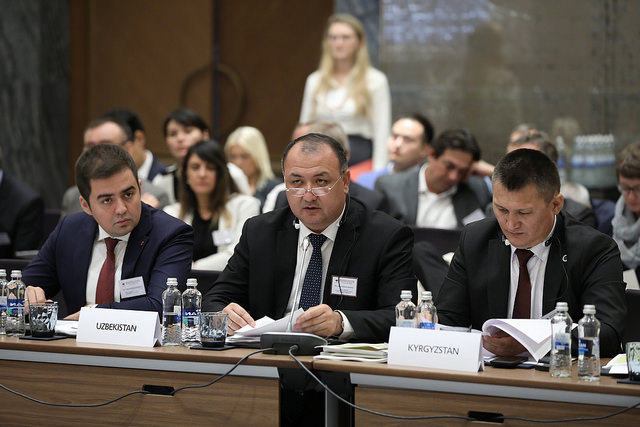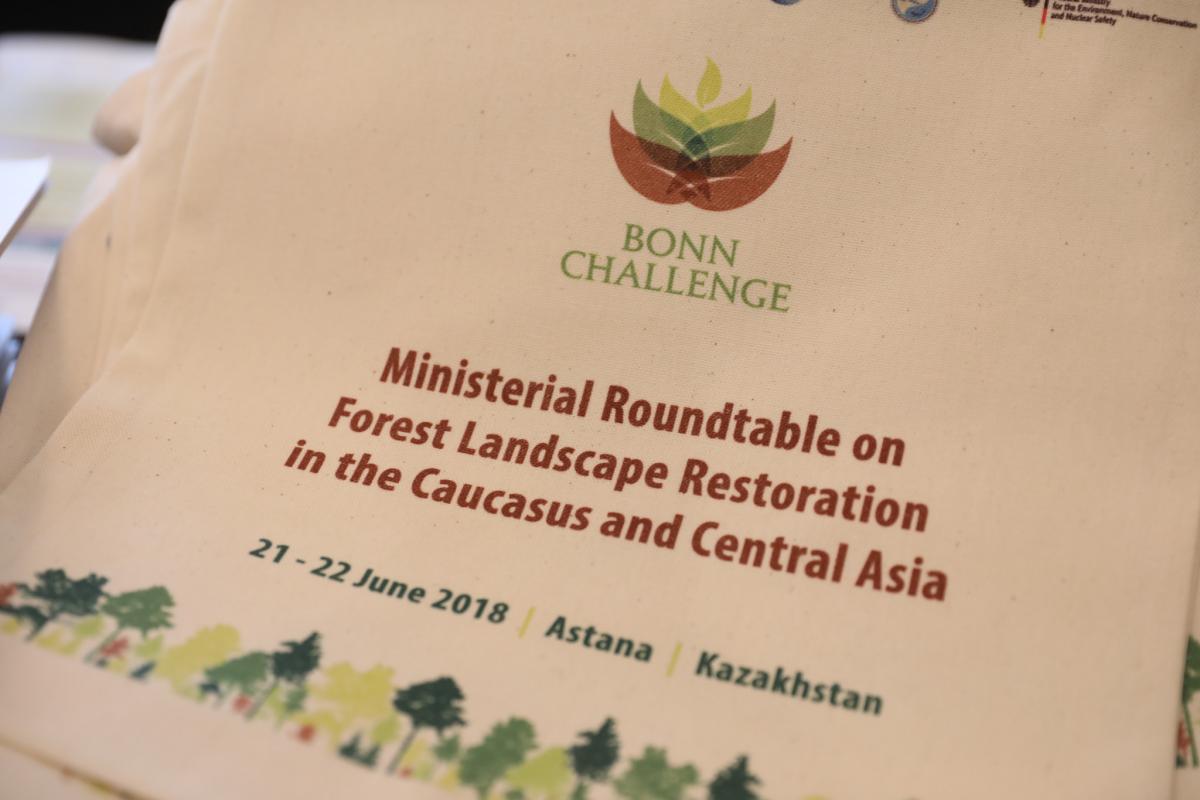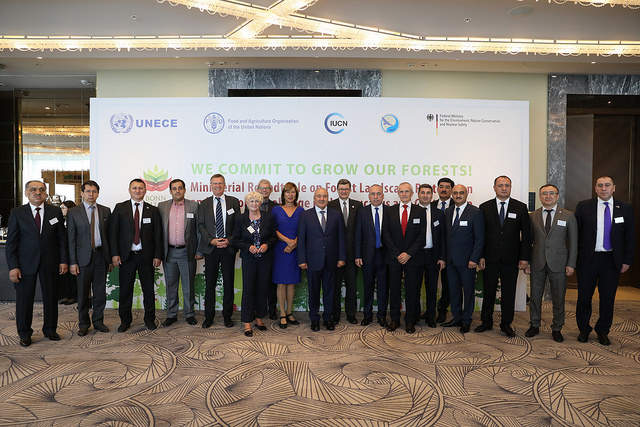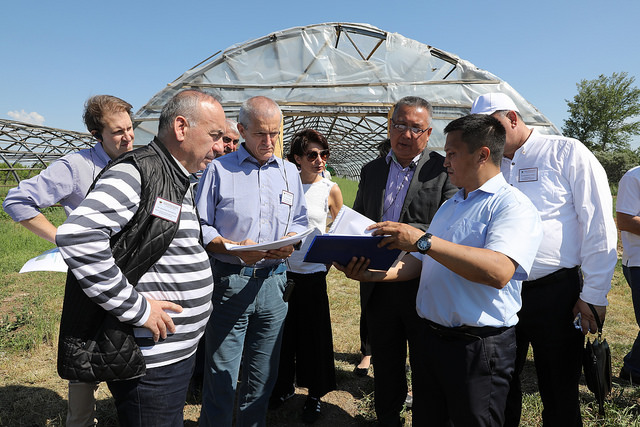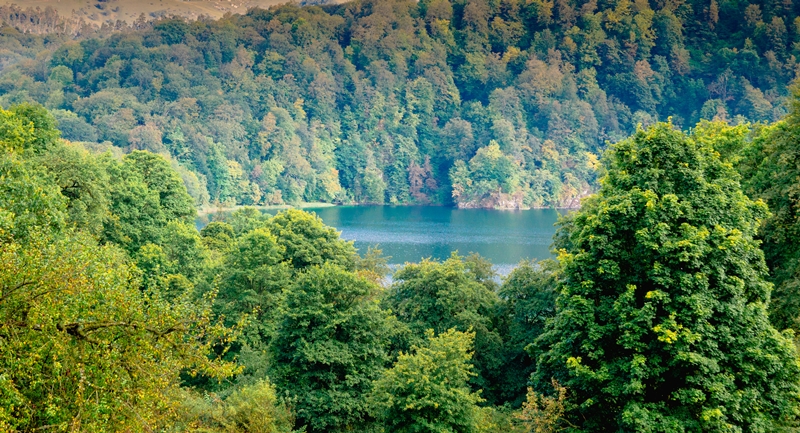Caucasus and Central Asia demonstrate impressive political will for restoration and the Bonn Challenge
The first Bonn Challenge Regional Ministerial Roundtable for the Caucasus and Central Asia was a massive success with several countries in the region pledging to bring 2.5 million hectares into restoration.
Ministers at the first Bonn Challenge Regional Ministerial Roundtable for the Caucasus and Central Asia not only pledged to bring 2.5 million hectares into restoration, but also adopted the Astana Resolution, agreeing to identify and restore degraded and deforested landscapes by 2030 under the Bonn Challenge and to using the Bonn Challenge Barometer to track progress.
Ministers from Armenia, Azerbaijan, Georgia, Kazakhstan, Kyrgyz Republic, Uzbekistan and the Republic of Tajikistan participated in the dialogue and emphasised the potential of forest landscape restoration (FLR) to contribute to national development objectives, the Sustainable Development Goals, Aichi Targets and Paris Agreement.
Gnel Sanosyan, Deputy Minister of Nature Protection of Armenia highlighted the country’s commitment to expanding its forest cover up to 20.1%, amounting to 260,000 ha. brought under restoration by the 2030 Bonn Challenge target. Abdushukur Hamzaev, Deputy Chairman of the State Forestry Committee, Director of the Forestry Research Institute, Uzbekistan said the country was keen to bring 500,000 ha. into restoration by 2030 and called for international financing to support an additional 500,000 ha.
Solomon Pavliashvili, Deputy Minister of Environment Protection and Agriculture of Georgia shared that Georgia’s commitment includes implementing afforestation and reforestation interventions across 1,500 ha. and using assisted natural regeneration and silvicultural techniques on 7,500 ha. by 2030.
In Tajikistan, restoration efforts have been underway since 2011 and the government is confident that by 2030, 66,000 ha. will be brought under restoration. Similarly in Kazakhstan, restoration programmes initiated in 2011 could result in 1,500,000 ha. brought under restoration by 2030 and the government expressed its ambition to bring an additional 300,000 ha. into restoration.
Bakyt Yrsaliev, Deputy Director of the State Agency for Environment Protection and Forestry of the Government of the Kyrgyz Republic expressed his government’s interest in conducting a detailed assessment of restoration opportunity in the country. Initial estimates suggest that FLR efforts in the country could result in 23,200 ha. being brought into restoration by 2028. In addition, the government is instituting grazing restrictions to improve the health of 300,000 ha. of pastureland.
IUCN, as the Secretariat for the Bonn Challenge, will be working with the jurisdictions to register their pledges and on capacity development in support of implementation.
Ministers emphasised the potential of degraded and deforested landscapes to contribute to their national development objectives, the Sustainable Development Goals, Aichi Targets and Paris Agreement with Deputy Minister Solomon Pavliasvhili saying, “We are confident that restoring our degraded and deforested landscapes will support our national and international commitments to mitigating climate change.”
Stewart Maginnis, Global Director of IUCN’s Global Forest and Climate Change Programme (GFCCP) reminded participants that the CCA region has a long history of FLR saying, “There have been sustained efforts to preserve Tugai forests along major rivers in Central Asia, protect pistachio and other nut-tree forests, develop green belts around Astana and Ashgabat and to afforest the Aral Sea dry bed. All these initiatives, aligned with the FLR principles, will be a powerful regional contribution to the Bonn Challenge.”
Importantly, the Astana Resolution called for reinforced cooperation on FLR, with policy dialogues playing a key role. It calls on development partners, international finance institutions and the private sector, to support efforts and investment at the national and regional level in FLR and for the development of a strategy for the scaling up and financing of FLR efforts.
This dialogue was hosted by the Ministry of Agriculture of the Republic of Kazakhstan, with organisational support from the United Nations Economic Commission for Europe (UNECE) and the Food and Agriculture Organization of the United Nations (FAO), in cooperation with the International Union for Conservation of Nature (IUCN) and with the generous financial support of Germany.
